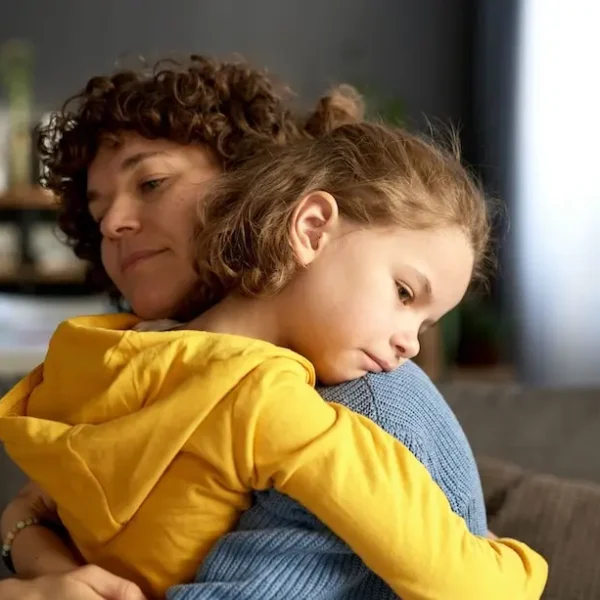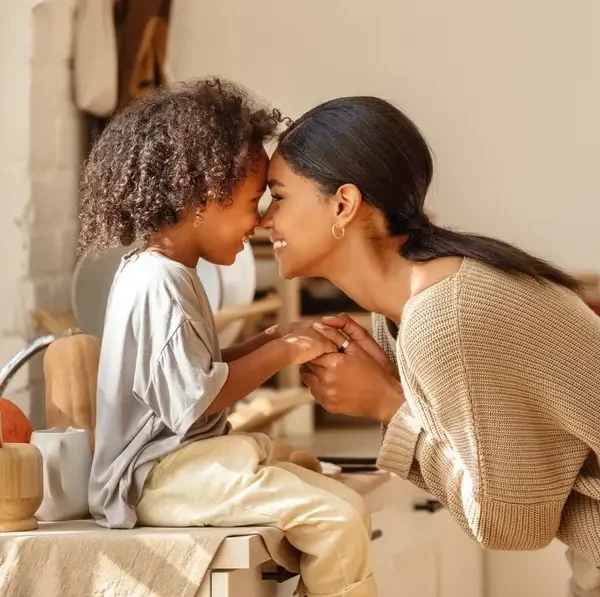
The other day I was speaking with a couple, and the dad sighed deeply, “I just want my son to listen! Why is that so hard?!”
I know that feeling is so familiar.
It’s one of the most common frustrations I hear from parents. You ask your child to do something – get dressed, stop throwing, brush teeth, turn off the screen – and instead of a simple “Okay, sure,” you’re met with whining, stalling, arguing, or outright refusal.
So let’s break this down.
Can we expect immediate obedience from our children when using this approach to parenting?
Whether you call it conscious parenting, respectful parenting, grounded parenting, or gentle parenting the question remains: Can you expect immediate obedience? The kind where your child listens the first time, no questions asked?
The short answer is no.
But hang on. I promise there’s more to this than just “letting your child do whatever they want.” That’s not what this is about.
Let’s take a closer look.
What Do We Mean By “Obedience,” Anyway?
When most people say “obedience,” they mean immediate, unquestioned compliance.
They mean: “Do what I say right now, because I said so.” No pushback. No hesitation. No defiance.
And truthfully, many of us were raised in homes where that was the norm. You were expected to obey your parents instantly, and if you didn’t, there were consequences. Often fear-based ones: yelling, punishment, emotional withdrawal, shame or physical discipline.
Here’s the hard truth: You can get this type of obedience from a child, but only if you’re willing to consistently use fear, intimidation, or emotional disconnection to get it.
And I know that’s not the path you want to take. You’re here because you’re trying to parent differently. To build something better. To raise children who are emotionally aware, respectful of others, and true to themselves.
And that means traditional obedience is no longer the goal.
So If Not Obedience… Then What?
Let’s reframe the conversation. If we’re not aiming for instant, unquestioned compliance, what are we aiming for?
We’re aiming for:
- Cooperation
- Collaboration
- Open communication
- Emotional regulation
- Internal motivation, not external fear
And yes, it’s absolutely possible.
But it takes a shift in our thinking first.
When you give your child space to express themselves – to feel their emotions, to ask questions, to have a say – you can’t be surprised when that expression shows up. In other words, you can’t pick and choose when you’re okay with your child expressing themselves and when you’re not.
You’re giving them the tools to think for themselves, and sometimes that means they will use those tools to push back against you.
It means you will likely hear, “But why?” or “I don’t want to!” or “That’s not fair!”
That doesn’t mean something’s gone wrong. It actually means something is working.
You’re raising a human being with a voice.
But Wait, Doesn’t My Child Still Need To Listen?
Yes, they do. Cooperation is still essential. No one wants a free-for-all.
But instead of commanding through fear or force, we lead through connection, consistency, and clarity. Because when your child feels emotionally safe, connected to you, and trusts in your leadership, they are far more likely to cooperate, even when it’s hard. Even when they’re upset. Even when they’d rather not.
That’s what we’re working toward:
Not blind obedience, but mutual respect, trust, and internal motivation.
Not do what I say or else, but I trust you to follow through, and I’ll guide you through the hard parts.
This takes patience, repetition, modeling, and repair. And we use our tools of boundaries, validation, coping skills, and reflection.
Let’s imagine a scenario: a room needs to be cleaned. We’re talking about the difference between:
“Clean your room or else… I won’t have a messy room while you live in my house!”
versus:
“Your room needs to be cleaned, yes. Because it’s the right thing to do. Because I’m teaching you responsibility and training you for life.”
See the mindset shift?
The first approach demands compliance through fear and threats. The second encourages cooperation through guidance and purpose. It’s not about letting go of our expectations, it’s about anchoring those expectations in relationship and growth.
When we lead with connection, our children are more likely to eventually cooperate; not because they’re afraid of us, but because they trust us and feel empowered to meet the expectation.
And yes, this takes more time and patience upfront. But over time, you’re building something much more sustainable: your child’s internal compass.
So The Next Time You Find Yourself Thinking:
“Why won’t my child just listen!?”
Pause. Breathe. And ask yourself: Am I seeking immediate obedience… or am I building long-term trust and skills?
We’re trading immediate obedience for something much deeper: a relationship rooted in trust, a child who feels seen and safe, and a long-term foundation for emotional maturity and self-discipline.
There Are Real Tools To Help With Cooperation, Boundaries, and Behavior
If this approach resonates with you, but you want more support in how to do it, you’re not alone. That’s exactly why I created my online courses.
⭐ The Everything Toddler Course
⭐ The Everything 3–7 Course
⭐ The Everything Siblings Course
⭐ The Everything Anxiety Course
⭐ The Potty Training Guide
These are not theoretical courses filled with fluff or confusion.
They’re practical, actionable, real-life parenting tools for everyday moments like the ones we talked about here.
You’ll learn:
- What to say (and what not to say) in tough moments
- How to hold boundaries with confidence and compassion
- How to encourage cooperation without yelling or threats
- And how to build the kind of lasting trust and respect that makes parenting much more rewarding
🧠 Clear, developmentally-appropriate insights
🎧 Audio versions to listen on the go
📄 Written summaries for quick reference
🎥 Real scripts and tools you can start using right away
 The 6 Parenting Principles That Will Transform Your Parenting Journey
The 6 Parenting Principles That Will Transform Your Parenting Journey Support, Don’t Fix: A Better Way to Parent
Support, Don’t Fix: A Better Way to Parent



